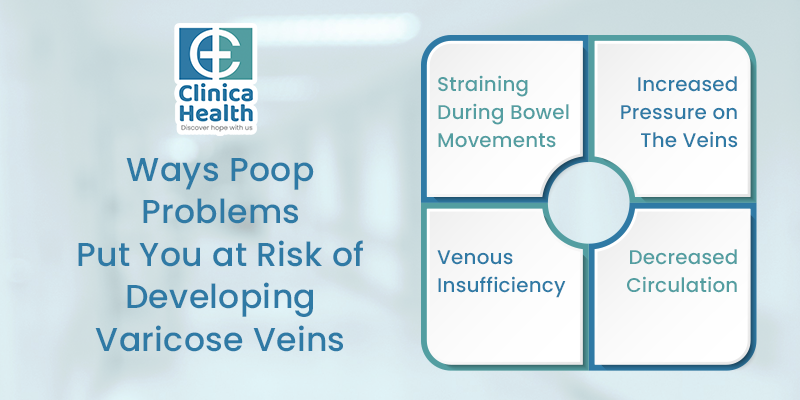-
 Call Now:
8010 552 552
7595 838 844
Call Now:
8010 552 552
7595 838 844
-
 Email Me:
[email protected]
Email Me:
[email protected]
Varicose veins are enlarged, twisted veins that mostly occur close to the skin’s surface near the legs, including the thighs, calves, ankles and feet. However, any vein can become varicose if it is near the skin surface. Prolonged standing or sitting is attributed to be the major cause of varicose veins; it puts pressure on the veins of the lower body part. Additionally, constipation or poop problems are also a risk factor for developing the condition.
Whenever an individual is constipated, he might think that the only problem he is experiencing is struggling to pass stool. However, this is not the case. In fact, constipation affects the whole body, especially the veins, says a reputed varicose vein doctor in Kolkata.
In this blog, we will explore the connection between bowel issues and the formation of varicose veins. We will get to know the treatment options for addressing both the conditions for overall well-being.
Trying to push too hard during bowel movements puts extra pressure on the veins, especially in the lower parts, which often increases the risk of developing varicose veins in the future, says a varicose vein doctor in Kolkata.
Let’s see how.

Here are the lifestyle changes you can follow to prevent constipation.
If you notice visible signs like swollen, twisted veins accompanied by pain, heaviness, or cramps, it indicates that you might be suffering from varicose veins.
Endovenous laser treatment (EVLT) is an effective treatment for varicose veins. The procedure is used to ablate the varicose veins in a minimally invasive technique. Within a week, you will see a significant difference in the appearance of your legs.
If you are suffering from varicose veins, don’t panic. Make sure to consult a top varicose vein doctor in Kolkata who will provide you with treatment options. On the other hand, if you are having bowel movement issues, make the necessary lifestyle changes as soon as possible to prevent the formation of the condition.